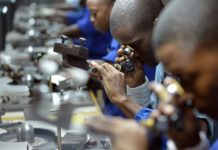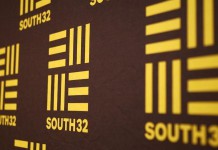A SIGNIFICANT increase in the wage bill was likely to push South Africa’s gold sector further into the red, said BusinessLive citing comments from the Minerals Council which said three-quarters of gold mines were unprofitable or just at break-even.
“Increases without a commensurate improvement in the gold price, exchange rate, cost profile or outputs will mean that the cost of labour as a portion of overall costs will rise, and the number of marginal and unprofitable operations will increase,” the council said.
The council was commenting ahead of wage negotiations with unions which are due to kick off today (July 11). The council is expected to table a counter-offer aligned to the consumer price index, which increased by 4.4% year-on-year for May, with some at the talks expecting a settlement to be two or three percentage points above that level, said BusinessLive in its article.
Participants in wage talks will include AngloGold Ashanti, Harmony Gold, Sibanye-Stillwater and Village Main Reef who will be facing the Association of Mineworkers & Construction Union (AMCU), the National Union of Mineworkers (NUM), Solidarity, and UASA.
The current agreements came to an end on June 30. When new wage and other benefits agreements are struck, they will be backdated to July 1.
From more than 392,000 people employed in 1994, the sector now has 111,800 and that decline is showing no signs of slowing, with the weak rand price of gold forcing the closure of Pan African Resources’s Evander gold mine and the shutdown of the Cooke mines owned by Sibanye-Stillwater, said BusinessLive.
The NUM was the first union to show its hand submitting on May 8 a 37% wage demand hike over two years which approximates to annual increases of between 15% and 18.5% until basic monthly pay for entry-level underground workers rises to R10,500 a month.
Just over a month later, on June, AMCU said it planned to demand basic wages of R12,500 per month for gold industry members. “R12,500: I think it can put the worker in a better place especially considering higher taxes and petrol prices,” said AMCU president Joseph Mathunjwa at the time.
Sandwiched between these two unions was the 10% wage hike demand of Solidarity on May 11. Solidarity is seeking increases of CPI inflation plus four percent, or 10% “… whichever is greater”. Solidarity only represents about two percent of the workforce in South Africa’s gold mines, but its members are skilled artisans and supervisors who are crucial to operations.











